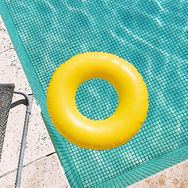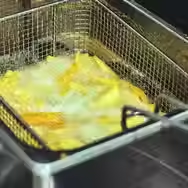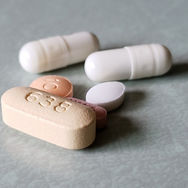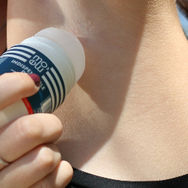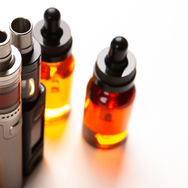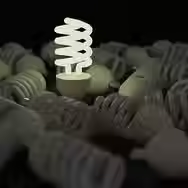RECYCLING
Accepted at Curbside

House Hazardous
Waste & E-Cycling Sites
What are Household Hazardous Waste and E-Cycling sites?
Household hazardous waste is a term for products that contain hazardous ingredients, while e-cycling is the process of recycling used electronics. They are often combined at one facility. What they accept may vary due to the local regulations and facility.
Items NOT Generally Accepted at Most Hazardous Waste & Electronics Recycling Centers
1. Business, Commercial, and Industrial Waste
-
Any waste from businesses, institutions, or commercial operations
-
Large-scale industrial chemicals and hazardous waste
-
Farm and agricultural waste
2. General Household Waste & Bulk Items
-
Regular trash and recyclables (paper, plastic, cardboard, etc.)
-
Furniture (couches, chairs, mattresses, etc.)
-
Construction debris (wood, drywall, shingles, etc.)
-
Cement, concrete, and bricks
3. Hazardous & Dangerous Materials
-
Explosives, ammunition, fireworks
-
Radioactive materials (including uranium, radium, etc.)
-
Controlled substances, narcotics, prescription medications
-
Biological or infectious waste (including medical biohazards)
-
Asbestos-containing materials
4. Paint & Automotive Fluids
-
Latex paint (water-based paint) – Often needs to be dried and disposed of with regular trash
-
Automotive oil filters – May require special disposal services
-
Farm machinery oil and large quantities of motor oil
5. Large Household Appliances (White Goods)
-
Refrigerators, freezers, air conditioners (due to refrigerants)
-
Washers, dryers, stoves, ovens, dishwashers
-
Microwaves, toasters, coffee makers, blenders, dehumidifiers
6. Electronic Waste (E-Waste) NOT Accepted at Some Locations
-
Large business or industrial copy machines
-
Smoke and carbon monoxide detectors (contain radioactive elements)
-
Films, reels, CDs, DVDs, cassette tapes, VHS tapes
-
Calculators, digital cameras, video cameras
-
Paper shredders
-
Power tools
7. Miscellaneous Items
-
Tires (usually accepted at tire recycling centers instead)
-
HVAC systems and accessories (furnaces, filters, etc.)
-
Print cartridges (some facilities accept, but not all)
-
Stereo equipment (varies by facility)
Important Notes:
🚫 Disposal alternatives may be available – Some items on this list can be taken to other specialized recycling or disposal facilities (e.g., paint stores, tire recycling centers, or medication drop-off locations).
🚫 Facilities may have different guidelines – Always check with your local hazardous waste or e-waste facility for the most up-to-date list of accepted and non-accepted items.
🚫 Certain items require special handling – Radioactive materials, explosives, and controlled substances often require law enforcement or special disposal services.
Items Generally Accepted at Most Hazardous
Waste & Electronics Recycling Centers
1. Household Hazardous Waste (HHW) Generally Accepted
These are products that contain toxic, flammable, corrosive, or reactive materials that require special disposal:
-
Household Chemicals
-
Cleaning products (bleach, ammonia, drain cleaners, disinfectants)
-
Automotive fluids (motor oil, antifreeze, brake fluid, transmission fluid)
-
Pesticides, herbicides, and fertilizers
-
Paints (oil-based only), stains, varnishes, thinners
-
Solvents and adhesives (glues, epoxy, paint strippers)
-
Aerosol cans (if not empty)
-
-
Flammable or Corrosive Materials
-
Gasoline, kerosene, diesel fuel
-
Propane tanks (some locations accept small ones)
-
Lighter fluid
-
Pool chemicals
-
Car and household batteries (lead-acid, lithium-ion, NiCad)
-
-
Toxic or Reactive Materials
-
Mercury-containing items (thermometers, thermostats)
-
Fluorescent light bulbs (CFLs and tubes)
-
Household medical sharps (some locations accept with proper disposal methods)
-
Fire extinguishers (varies by facility)
-
2. Electronic Waste (E-Waste) Accepted
These are discarded electronics that contain valuable and hazardous materials:
-
Computers & Accessories
-
Desktop computers, laptops, tablets
-
Keyboards, mice, external hard drives, USB devices
-
Monitors (LCD and CRT)
-
-
Personal and Home Electronics
-
Cell phones, smartphones
-
TVs (LED, LCD, CRT, plasma)
-
Printers, fax machines, scanners
-
Modems, routers, cables, chargers
-
Stereos, speakers, gaming consoles
-
DVD/Blu-ray players, VCRs
-
-
Batteries & Power Storage
-
Rechargeable batteries (lithium-ion, NiMH, NiCd)
-
Uninterruptible Power Supplies (UPS)
-
Power banks and portable chargers
-
-
Office Equipment
-
Copiers, shredders (varies)
-
Projectors
-
Telephones, answering machines
-
Important Notes:
✅ Facilities may have restrictions on certain items—check local guidelines.
✅ Some electronics require a fee for disposal (e.g., TVs, CRT monitors).
✅ Household hazardous waste centers do NOT accept commercial or industrial waste.
✅ Items like microwaves, toasters, and refrigerators may require a different facility.
Examples of Non-Acceptable Waste At House Hazard Facility
Examples of Acceptable Waste At House Hazard Facility

Curbside
Recycling
What is Curbside Recycling?
Curbside Recycling programs are often run by municipalities. The definition of curbside recycling varies by location, but it generally refers to the collection of recyclable materials from homes for processing at recycling centers.
Acceptable Waste by Curbside Recycling

What and How To Recycle and Dispose
Item by Item






































